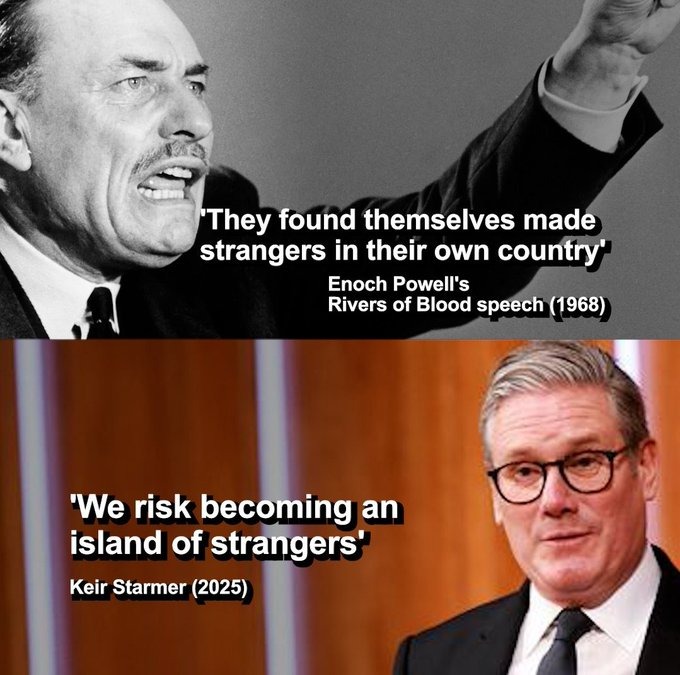In 1968, Enoch Powell’s “Rivers of Blood” speech cast a long, toxic shadow over British political discourse. His claim that Britons would become “strangers in their own country” was rooted in a fear of immigration that veiled racial anxiety as cultural concern. Fifty-seven years later, Labour leader Sir Keir Starmer has echoed similar language, warning that we “risk becoming an island of strangers.”
The comparison is as uncomfortable as it is revealing. While Starmer’s words lack Powell’s incendiary tone and historical baggage, the resonance is unmistakable. Both frame the nation in terms of alienation—a fracturing of communal identity—and both raise the question: who, exactly, is being made a stranger, and by whom?
In Powell’s time, it was clear: non-white immigrants were the perceived outsiders, and the speech served as a clarion call to nativism. His rhetoric helped define the outer edge of acceptable public discourse on race and migration for a generation. For Starmer, the terrain is subtler, but no less fraught. His remark comes at a time when Britain is grappling with cultural fragmentation, economic disparity, and a chronic crisis of political trust. The “strangers” he refers to may not be immigrants alone—they may be the economically dispossessed, the digitally isolated, the politically disillusioned.
Still, language matters. When national leaders frame the present in terms of strangers and estrangement, they risk validating the idea that belonging is a fragile, exclusionary privilege—rather than a shared, evolving identity. In doing so, they echo a historical reflex that sees social change not as an opportunity for enrichment, but as a threat to cohesion.
But who makes a stranger? Is it the migrant who moves to contribute to a new society? The young Briton priced out of their hometown? The minority Briton asked again and again, “Where are you really from?” Strangership, we must recognise, is often imposed—not chosen. The danger lies not in our growing diversity, but in the politics of division that treat cultural difference as a zero-sum game.
If Starmer wishes to lead a truly inclusive Britain, he must move beyond cautious nods to national unease and instead articulate a hopeful, generous vision of belonging. One that doesn’t merely mourn a perceived loss of identity, but builds a future around shared values—fairness, dignity, opportunity—for all who call this country home.
Otherwise, we risk more than becoming an island of strangers. We risk becoming a nation afraid of its own reflection.
@newdaystarts

